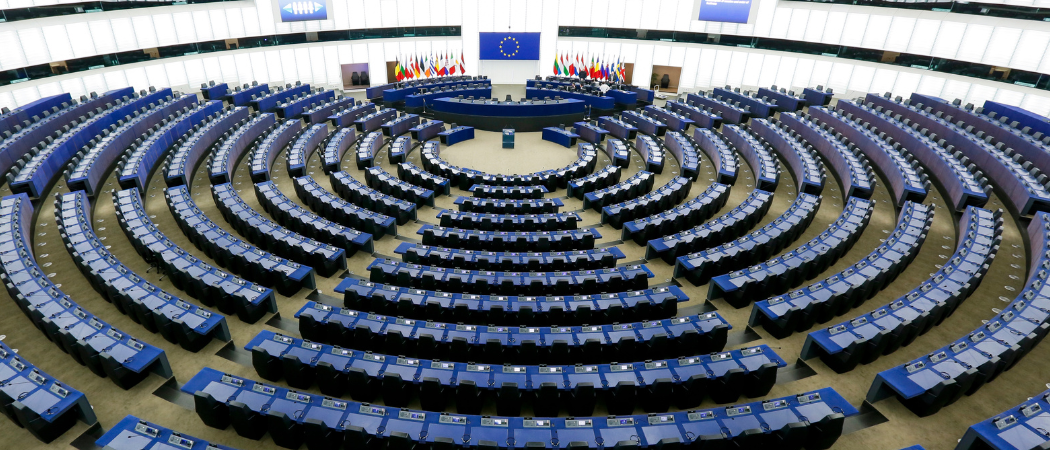As members of the ITRE research committee plan their political futures, we have compiled an overview of the movers and shakers in EU research and innovation policy

Empty European Parliament hemicycle in Strasbourg. Photo credits: Mathieu Cugnot / European Union
The European Parliament elections are drawing near and as Brussels prepares for a new class of MEPs, the research and innovation community is looking to see who will be returning to shape the tenth EU Framework Programme, FP10 and the next five years of EU policymaking in the field.
While a few MEPs on the research and industry committee (ITRE) will not stand for re-election – including the chair of the committee, Romanian Cristian-Silviu Bușoi, who is one of the major supporters of Horizon Europe’s Widening programme – other long-standing members are running for another term.
The two Horizon rapporteurs
Both Germany's Christian Ehler and Romania's Dan Nica, the co-rapporteurs on Horizon Europe, are standing again.
Ehler has been a member of the European Parliament since 2004 and, in addition to playing a leading role in the negotiations for Horizon Europe, has been closely involved in other major R&D policy files. He was rapporteur of the net-zero industry act, which aims top promote innovation and scale up of the manufacturing capacity for net-zero technologies, and is also the chair of the Panel for the Future of Science and Technology (STOA), the European Parliament's science think tank.
In the final months of his current mandate Ehler agreed to update transparency rules at STOA following a heated debate in which MEPs accused the panel’s administration of overstepping its powers by withdrawing an independent report on the EU pharmaceutical legislation.
More recently, as the first moves were taken in scoping FP10, Ehler urged the research community to lobby national governments to double the budget to €200 billion. It is far from clear if that will happen, but the research community will need a strong political ally during negotiations between the European Commission, the Parliament and member states.
Ehler also led a chorus of MEPs calling on the European Commission to include the Parliament in decisions on which countries can become associated members of Horizon Europe - an issue that is yet to be settled.
The other Horizon Europe co-rapporteur, Dan Nica became an MEP in 2014. He is an advocate for greater geographical balance in the distribution of funds from Horizon Europe and the European Defence Fund. During negotiations on Horizon Europe, he suggested the EU should stop funding research outside the bloc and focus on reducing the innovation gap between rich and poor member states, including through a bigger Widening programme.
More recently, he said the newly established European Defence Fund (EDF) should distribute grant money in all corners of the EU and not just in the few countries with strong defence industries.
After serving two terms, Nica is standing again but his chances are slim because he ended up last on the joint list of a newly-formed political coalition.
Other MEPs on ITRE
Latvian MEP Ivars Ijabs, another ITRE member, who is also vice chair of STOA, will run for a second term. Another crucial supporter of Widening measures, Ijabs quickly became a top player in the research community, calling for increased national funding for Horizon Europe.
Danish MEP Pernille Weiss, who also sits on STOA, hopes to run for a second term in June. She played a pivotal role as co-rapporteur on the EU pharmaceutical regulation, along with Tiemo Wölken. This is the most significant reform of pharma legislation in over two decades, and MEPs were divided over how best to improve patient access to new drugs whilst encouraging innovation. Parliament has now agreed its position and trilateral negotiations between Council, Commission and Parliament will take place after the elections.
Weiss is also a member of the European Parliament group on climate change, biodiversity and sustainable development, and of the group on small and medium-sized enterprises.
While she wants to stand for re-election, there are political hurdles at home. Last May, her national party, the Conservative People's Party, announced that it would not nominate her as a candidate for the 2024 European Parliament election, after an internal investigation uncovered reports of bullying in her office. Weiss appealed the decision, but the party's national council confirmed the ban, by 440 votes to 145 - whether she will stand or not remains unclear.
Research-friendly MEPs standing down
Romanian MEP Dragoş Tudorache, rapporteur of the recently adopted artificial intelligence act is standing down, while, Portuguese MEP Maria da Graça Carvalho resigned in early April to become minister for environment and energy in the new Portuguese government.
Carvalho was a stalwart of ITRE and was one of the lead drafters of the Horizon 2020 research programme. In Horizon Europe negotiations, she was rapporteur in the setting up joint undertakings, the public-private partnerships that integrate industrial research in specific fields.
Always a vocal advocate for a bigger budget in research, this year Carvalho joined MEPs, research stakeholders and the whole R&D sector in calling for the Commission to double the budget for FP10 to €200 billion.





 A unique international forum for public research organisations and companies to connect their external engagement with strategic interests around their R&D system.
A unique international forum for public research organisations and companies to connect their external engagement with strategic interests around their R&D system.